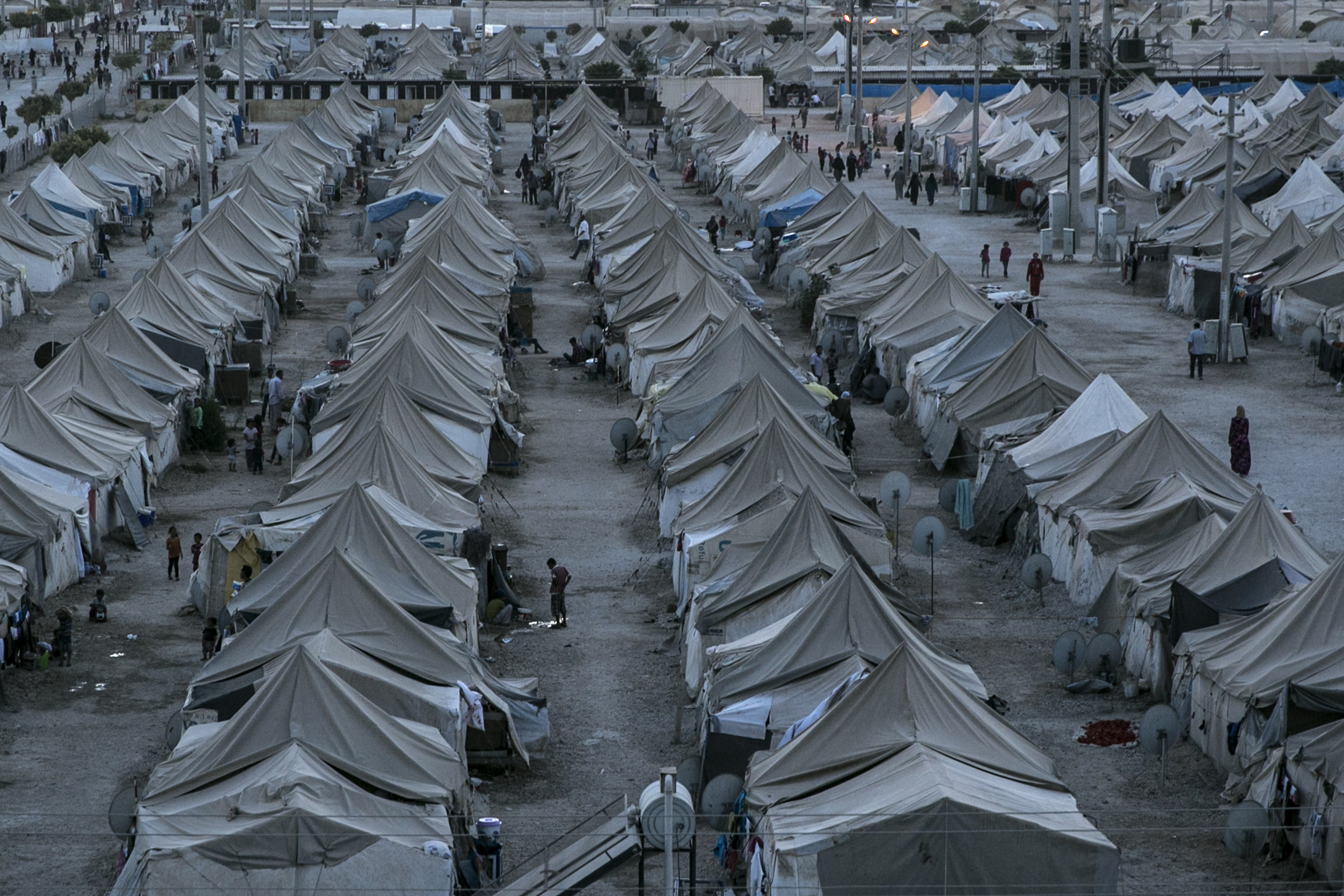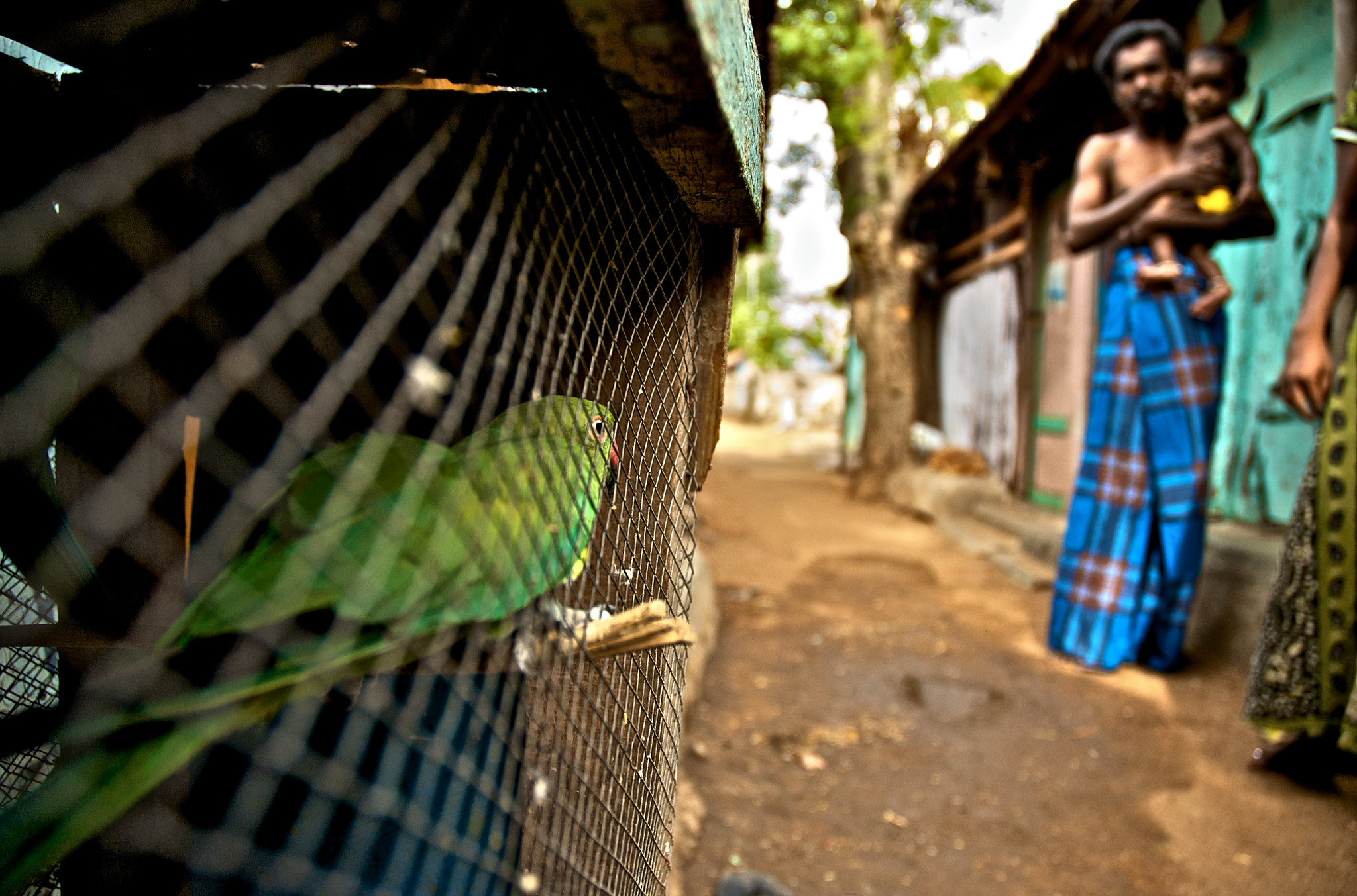
Business & Economics
‘A crisis that very much has a child’s face’

Over 10 million people are stateless, leaving them vulnerable to discrimination and exploitation, and legal argument is a critical battleground for finally tackling the problem
Published 6 June 2017
When Ahmed al-Kateb arrived in Australia in 2000 on an Indonesian fishing boat, little did he know he would become a “nowhere man” facing indefinite detention.
Born in Kuwait from Palestinian refugee parents, Mr al-Kateb was stateless. It meant that when Australia rejected his refugee application there was no home to go to and no other country would take him. It wasn’t until 2003 that he was released and told to wait in limbo while authorities here tried to find somewhere to send him – an effort they finally gave up on in 2007 when they granted him residency. By then the country’s High Court had infamously ruled that the government would have been within its rights to imprison him forever.

Mr al-Kateb’s story is one that is repeated in some form more than 10 million times a day around the world. That is the number of people the United Nations conservatively estimates are stateless. And that number is growing. According to the United Nations, a child is born stateless every 10 minutes.
“In our globalised and mobile world, the idea that someone doesn’t enjoy the protection and rights of a nationality can seem almost inconceivable, but it is the reality for millions of people,” says Professor Michelle Foster, who is set to lead a new research centre aimed at fighting statelessness that will be based at the Melbourne Law School.
Stateless people face daily discrimination, being excluded from the protection, education, healthcare and work rights that are regularly enjoyed by a country’s citizens. It leaves them exposed to exploitation, abuse, abduction and even slavery. There are international laws and agreements in place to protect the stateless and eliminate it, but not all countries have signed up and many of those that have signed aren’t abiding by their obligations.

Business & Economics
‘A crisis that very much has a child’s face’
According to Professor Foster, it means a big part of ending statelessness is to bring the weight of those laws and obligations to bear on governments.
A key objective of The Peter McMullin Centre on Statelessness will be to provide research and expertise to support efforts in lobbying governments around the world to better protect stateless people and end it altogether by nationalising them.
The United Nations High Commissioner for Refugees has launched a global effort to end statelessness by 2024 and is pushing more countries to ratify agreements while pressuring those who have ratified agreements to meet their commitments. But Professor Foster says the success of the effort will also depend on taking the fight into domestic courts through so-called “strategic litigation” where legal expertise, such as the new Centre’s, will be crucial.
“The Centre will be focused on having an impact, and supporting local scholars and activists and non-government organisations is really important for the success of strategic litigation,” says Professor Foster. “We will be working towards policy reforms no matter what avenue it takes, whether through research, education, talking to government, or supporting efforts at litigation.”
Accordingly the Centre will be providing training and extending legal expertise to activists and scholars.
It was only through litigation that some 250,000 Urdu speakers living in Bangladesh were awarded nationality in 2008 after being left stateless in the wake of the civil war there that had confirmed Bangladesh’s independence from Pakistan in 1971.

A stateless person is defined under international law as “a person who is not considered as a national by any State under the operation of its law.”
There are many reasons why a person becomes stateless, but one of the most common is wholesale discrimination on the basis of ethnicity, race, religion and gender. Among the more than 10 million stateless people in the world are entire ethnic groups. These include the Rohingya Muslim minority in Myanmar that number almost a million. But they also include the descendants of foreign workers and conflict refugees that have long been settled in host countries such as Cote d’Ivoire, where there are 700,000 stateless people, of which about 300,000 are foundling children. The break up of the Soviet Union stranded many ethnic Russians in former Soviet republics and there are over 250,000 stateless people in Latvia alone.

Politics & Society
What is a refugee?
In some countries there also exist laws against women passing on nationality to their children, which continues to perpetuate statelessness. Some 27 countries have such laws, mostly in the Middle East and North Africa.
The UN’s 1954 Convention on statelessness explicitly sets out the rights and protections of stateless people, including their rights to basic things like education, housing and employment. The subsequent 1961 Convention requires countries to nationalise stateless children born within their borders. It also prevents countries from denationalising a citizen except in special cases. But out of the world’s 196 countries, only 83 have ratified the 1954 convention and only 61 have ratified the 1961 Convention. Of these many aren’t meeting their obligations.
“At the time these conventions were being formulated post WWII I think there was an expectation that the problem would take care of itself but that is clearly not happening,” says Professor Foster.
It is why, she says, there has to be a focus on effecting change through domestic law courts.
“Such efforts can include arguing that other human rights laws and treaties, like the Refugee Convention, should apply to stateless people given that the effect of statelessness is often human rights violations.
“We need to understand legally that statelessness itself can be seen as a form of persecution. Even in cases where statelessness itself isn’t the result of persecution, what stateless people suffer is tantamount to persecution.”

According to Professor Foster, Australia is one of the countries not meeting its obligations under the 1954 convention, as illustrated by the case of Ahmed al-Kateb. She says that under the 1954 Convention stateless people should be entitled to protection in Australia. “Our system is that if you don’t have a visa you are either sent home or detained, which means stateless people are often simply detained like Mr al-Kateb. There is simply no system in place for protecting stateless people.”
Up to date figures on the number of stateless people held in Australian detention facilities aren’t readily available, but according to the most recent government figures available, which date back to April 2015, there were 81 stateless people held in detention. The latest March 2017 figures don’t detail the number of stateless people held in detention, but do report that there are 56 stateless people outside detention and approved to live in the community.

Business & Economics
Don’t rush in, think about the bigger picture
Australia’s 2014 Counter Terrorism Legislation Amendment allows the government to strip dual nationals involved in terrorism of their citizenship, but Professor Foster says there are currently inadequate provisions in place to check that a convicted terrorist does indeed have a dual-nationality; without that, the legislation could make people stateless and be in breach of the 1961 Convention.
“We as a country have a responsibility in these cases to prosecute and punish our criminals accordingly. By stripping someone of their nationality we are just absolving ourselves of that responsibility and because people have to end up somewhere, we are just passing on the problem to someone else,” she says.
“One of the huge contributions this centre can make is in education and raising awareness of the issue. In many countries such as Australia there is very little understanding of statelessness, or when there is people think it is a problem elsewhere. But the reality is it’s a problem everywhere, even in our backyard.”
The Centre is being established with generous philanthropic support from Peter and Ruth McMullin. Peter McMullin is the former deputy Melbourne Lord Mayor, former Geelong Mayor, lawyer, chairman of the McMullin Group and a University of Melbourne alumnus. Ruth McMullin is a social worker and together the pair are committed philanthropists.
Banner Image: Shutterstock